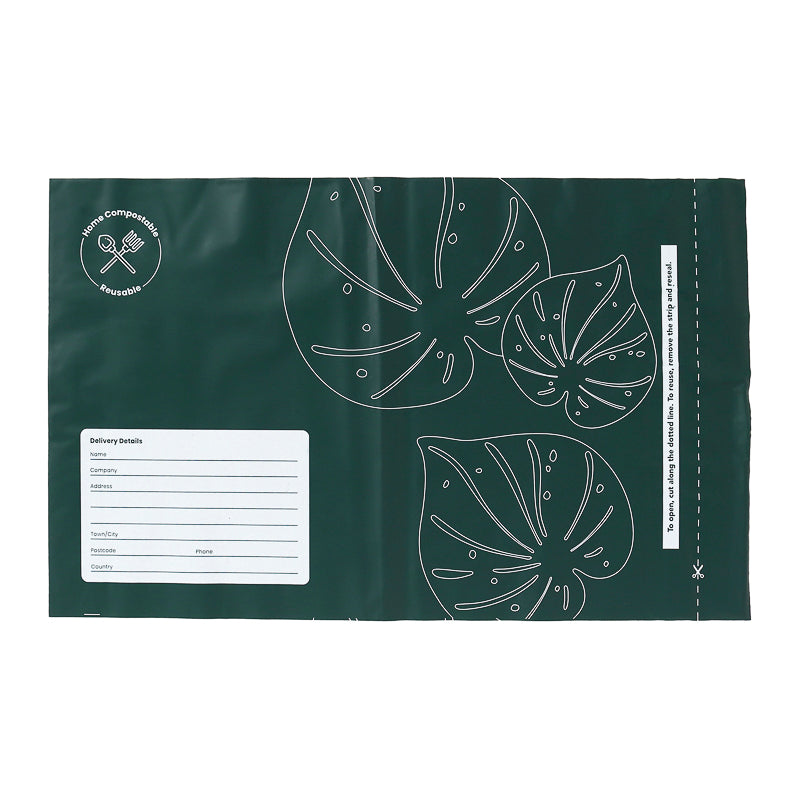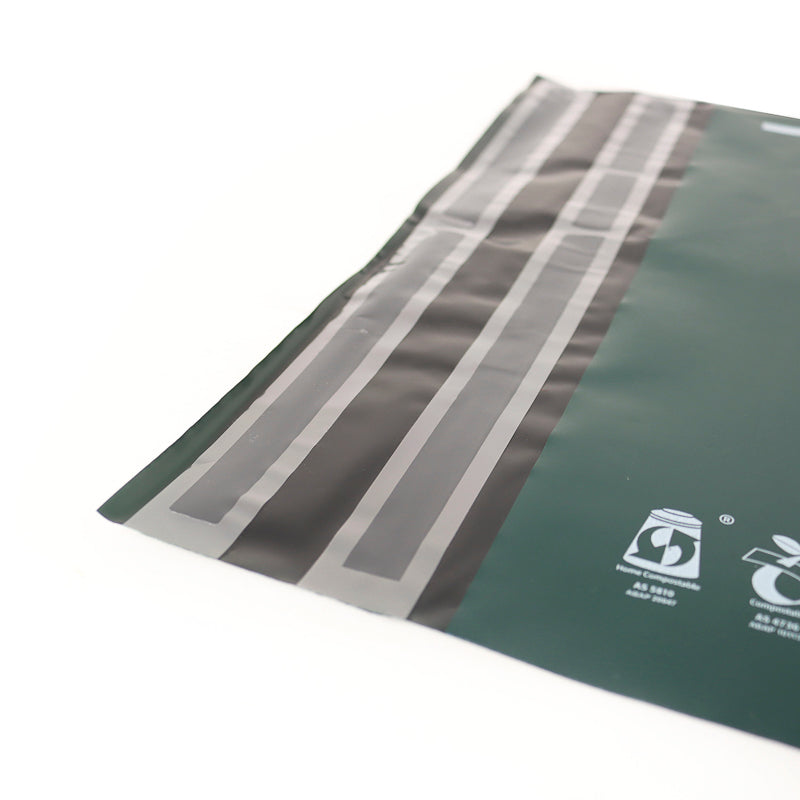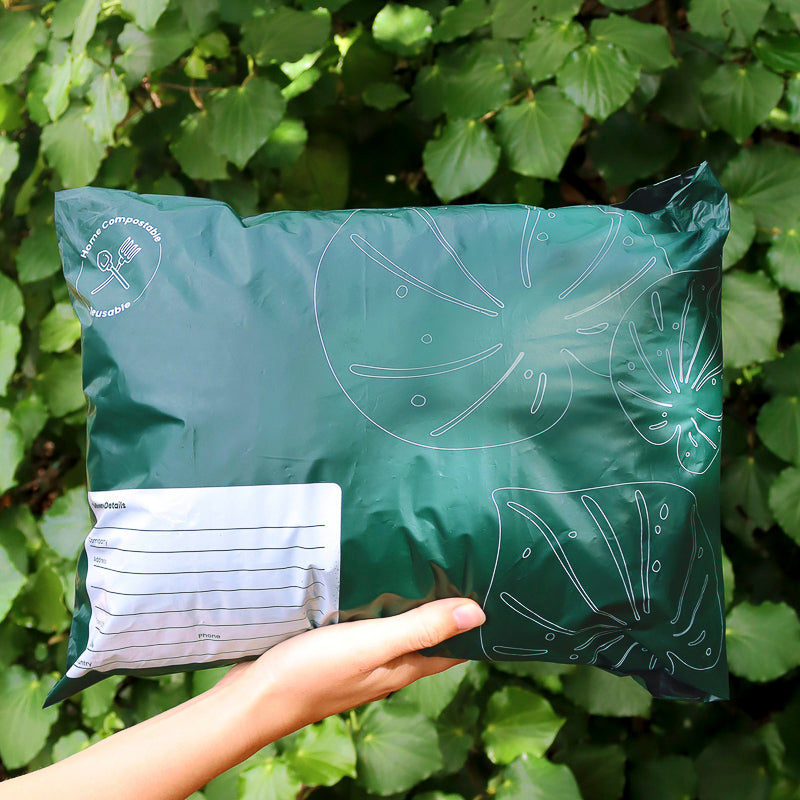
Ecopack Foolscap Compostable Courier Bags (1 Pack/25 Bags)
Looking for a sustainable alternative to traditional plastic mailers? Ecopack Foolscap Compostable Courier Bags are 100% biodegradable, made from corn starch, and printed with non-toxic inks, offering an eco-friendly solution for your shipping needs.
These courier bags have a silky texture and a rich green colour that adds a premium feel to your product. They also feature two seal strips, allowing customers to reuse the bags easily—simply use the strip furthest from the opening for a second use. Choose Ecopack Foolscap Compostable Courier Bags for a luxurious, earth-conscious packaging solution.
- Size: 280mm w x 380mm h + 70mm (flap)
- Bags per pack: 25





- Product Features
- FAQs
- 100% Compostable and biodegradable
- Certified for home and commercial composting
- Contain GMO-free corn starch, PLA and PBAT materials
- Non-toxic inks
- Silky feel with a rich green colour
- Double adhesive strips for reuse
- Pack contains 25 bags
Product Specs
- Size:280mm w x 380mm h + 70mm (flap)
- Foolscap is slightly larger than A4, ideal for carrying documents or folders.
- Recommended shelf life of 12 months
✓ Certified by Australasian Bioplastics Association to the Commercial Composting Standard AS 4736 (Certificate # ABAP 10113)
✓ Certified by Australasian Bioplastics Association to the Home Composting Standard AS 5810 (Certificate # ABAP 20047)
If you are a commercial business or council, requiring larger volumes, please get in touch with our team to discuss. Minimum order quantity (MOQ) for custom branding is 10,000 bags.
Can compostable courier bags be composted at home?
Yes, Ecopack compostable courier bags are both home and commercially compostable. Please remember to remove labels and seal as these added components may not be biodegradable.
Certification standards achieved:
- Australian Bioplastic Association AS4736-2006 (industrial/commercial)
- Australian Bioplastic Association AS5810-2010 (home)
How long will they take to decompose in the compost pile?
Compostable bags decompose in approximately 90-180 days, depending on the composting environment. Industrial composting typically works faster than home composting for two main reasons:
- Home composting bins usually reach temperatures only slightly higher than the outside temperature, and this happens for short periods. In contrast, industrial composting maintains temperatures around 50°C, with peaks of 60-70°C, for several months.
- Everyday people manage home composting bins, where conditions might not always be ideal, whereas qualified personnel manage industrial composting plants, ensuring optimal conditions for faster decomposition.






